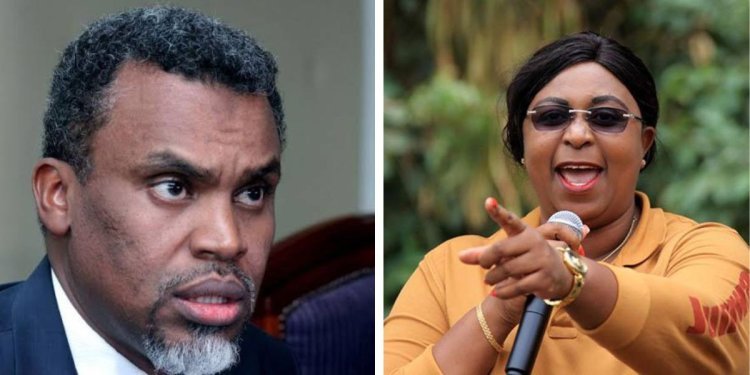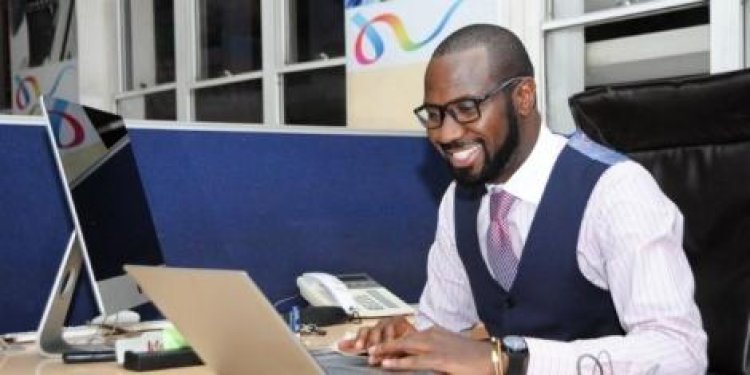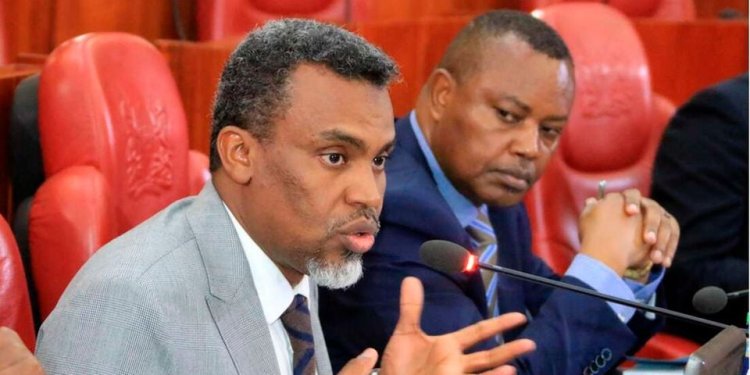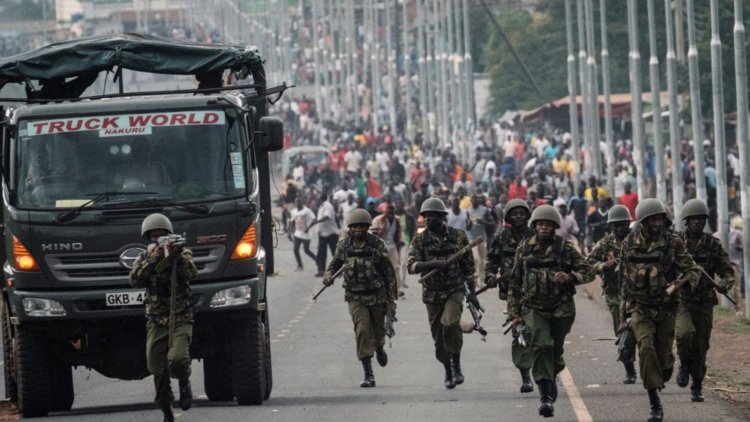DPP Haji Asks Media For Apology Over Aisha Jumwa Case
He clarified that journalists should exercise caution when reporting their stories and would raise complaints in the event that they are unhappy with reports involving his docket.

The Directorate of Public Prosecution (ODPP) Noordin Haji has revealed that his office apologised to journalists after warning them that it would take action against misreporting from them.
Speaking to KTN News' Sophia Wanuna on Sunday, October 30, Haji noted that his docket had raised an issue with NTV's James Smart misrepresenting a murder case involving Cabinet Secretary appointee for the position of Public Service, Gender and Affirmative Action Aisha Jumwa.
He clarified that journalists should exercise caution when reporting their stories and would raise complaints in the event that they are unhappy with reports involving his docket.
Haji confessed that the ODPP's initial statement was taken out of context and had reached out to the media to ask for an apology.

NTV journalist James Smart at his work desk posted on October 22, 2021. /TWITTER.JAMES SMART
"No, that was misreported and misrepresented. ODPP did raise an issue whereby I think it was James Smart that misrepresented facts in Mombasa and we raised that and said that journalists should be a bit more careful and where we are aggrieved then we will follow through and complain.
"Here I meant the Media Council of Kenya (MCK) and the guilds...but it was put out of context. I think I'm on record and you know for the last four years I've stood by journalists and I've made sure that they are able to practise their trade to their best and fullest, that was just totally put out of context and we did ask for an apology," he said.
The ODPP had warned that it would not hesitate to take action in the event journalists are responsible for misreporting before it was forced to clarify that it will respect their rights and continue to protect them, adding that it is available in case of any clarification and any action taken would be in consultation with MCK and the Kenya Editors Guild.
Why DPP Haji Dropped A Number of High-Profile Cases
Haji stated that he had no ill motives in dropping charges against cases involving high-profile individuals, adding that his docket had done well in their prosecution.
“People are reading too much into it. If you look at the number of cases we’ve been handling, and the number of cases we’ve reviewed, nobody has raised those questions before. And really if we had any sinister motive whatsoever, then I would have been more careful in when and how I was going to withdraw them. But we had no such ill motive at all.
“We have done really well in the prosecution of some cases and failed in some especially corruption cases which were weaponized and used against us,” Haji said.
The DPP earlier this month made headlines after he applied to withdraw a Ksh80m graft case against former Samburu Governor Moses Lenolkulal. The magistrate Thomas Nzioki however asked him to justify the withdrawal bid.
On the same day, the Directorate of Public Prosecutions (ODPP) said it will also withdraw all cases against human rights defenders who were arrested illegally and charged falsely by police officers. Other corruption charges withdrawn included a Ksh400 million case against former Kenya Power Managing Director, Ben Chumo and 10 others, ostensibly for lack of evidence.
He further added that the decision to withdraw wasn't made suddenly.
“Our files are open for scrutiny and we did that with the Law Society of Kenya (LSK) and other players within the legal fraternity and we had a number of communications in some of the files much earlier before this decision was made.
"The decision to withdraw was made even before the elections itself because we had undertaken a number of reviews. We had communicated with the office of the Directorate of Criminal Investigations (DCI) to ask them to avail the evidence that was required for us to be able to make full disclosures in court and for us to prove our point,” he added.
Haji's Bad Blood with DCI
The DPP then opened up on his office's tussles with the DCI.
“The main bone of contention was the decision to charge and that’s why in the end, the office of the DPP came up with guidelines on the decision to charge. However, over time we discovered that the DCI at that time was not serious in availing evidence.
"That’s why we had a pull and shove between the two offices because I could not allow any longer to have cases that did not have the desired threshold and did not meet what was sufficient for us to go to court. And that’s why then our posture changed and we demanded that the DCI should finish all his investigations before we can move to court and make that decision to charge,” said Haji.
Haji, while defending himself, argued that he was targeted with threats and legal action to have him kicked out of office because of carrying out his mandate.

Director of Public Prosecutions, Noordin Haji (left) and former Director of Criminal Investigations George Kinoti. /DAILY NATION
“What we discovered then was that a lot of those cases did not meet the threshold, and I am not saying this because he (DCI) is out. But I think I stood my ground all through even when I was threatened and taken to court for removal because I stood by my decision to say that the evidence must be there before I can make that decision to charge. That I will no longer depend on good faith because that good faith is not there.” said Haji.
Haji further noted that the decision to charge Deputy President Rigathi Gachagua was made on the threshold and the office was pushed by the DCI through the media. The ODPP had felt that there was sufficient evidence to charge him but later discovered that the documents were forged
He nonetheless expressed that he did not regret working with former DCI boss, George Kinoti because his office now has guidelines appreciated by everyone, even the President.
"We stood firm as independent institutions despite threats and coercion. My house was broken into but I stood firm," he said.
Haji Acting On Baby Pendo's Case
On the matter of the case involving the death of Baby Samantha Pendo during the 2017 General Election, DPP Haji noted that he decided to seek help from the United Nations (UN) because the investigations done by the DCI raised a number of questions.
"I found the case of baby Pendo and then made the decision that it should go for an inquest because the investigations done by the DCI were wanting. We asked the UN for help because we felt that someone must take responsibility," he said.
The DPP charged four police bosses who commanded the operations in the informal settlements of Nyalenda, Nyamasaria, Kondele and Obunga in Kisumu County, as well as eight junior cops, with murder over the matter. Among those charged were a Commissioner of Police, Senior Superintendent, Assistant Superintendent and a Chief Inspector.

Police officers during protests in 2017. /FILE






